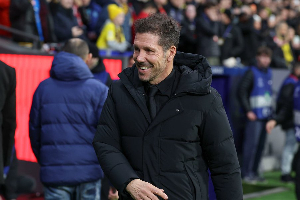KPMG Nigeria has said that President Bola Tinubu’s target to increase the country’s Gross Domestic Product (GDP) growth rate by 6% on average in the next 4 years may not be feasible.
In its Issue 8 Flashnotes released on Friday, the company said the target that Tinubu set during his inauguration speech would be very difficult to achieve in four years. KPMG noted that attaining a 6% real GDP growth on average from 2023 to 2026 means growing the value of real GDP from N74.6 trillion in 2022 to N92.5 trillion by 2026 representing an increase of N17 trillion in 4 years.
According to the company, within 12 years, between 2010 and 2022, real GDP grew by about N17 trillion which will have to be replicated in just 4 years and within a much more challenging macroenvironment that cuts across the fiscal, monetary, external, and real sectors.
It added that GDP growth of 3% is assumed in the first year going by World Bank’s projection for 2023, the economy will then have to grow by an average of 7% for the subsequent 3 years and moving growth from a forecasted 3% in 2023 to at least 7% in 2024 and afterward, which seems overly ambitious.
Why the target will be difficult
Giving further reasons the target may be difficult to achieve, KPMG in the Flashnotes stated:
“The fact that Nigeria’s GDP will need to grow by at least 6% to generate enough jobs to absorb labor market growth (about 4% per annum) and reduce poverty is well understood by President Tinubu’s Administration. The president, during his inauguration speech, had set a target to increase the GDP growth rate of the country by 6% on average in the next 4 years through budgetary reforms aimed at stimulating the real sector of the economy. However, we are of the opinion that this might be difficult to attain in four years. For example, the consensus among analysts is GDP growth in 2023 of between 2.7-3.2 %.
“GDP using the expenditure approach, is the cumulation of household and government consumption expenditure, private and public investment, and net exports which means the president will have to introduce policies and take decisions that will lead to growth across these variables. However, taking decisions in one variable can lead to a decline in another.
“For example, to grow government revenue to expand government consumption and investment, it might increase taxes and /or borrow from the private sector. However, increasing taxes can lower purchasing power and slow consumption expenditure growth. At the same time private investment may be curtailed as business earnings are squeezed from slowing demand, higher costs from higher taxes, and higher interest rates as government borrowing crowds out private-sector lending and then pushes rates up.”
KPMG added that the ability to maintain a fine and delicate balance across these variables will be important, adding “But where will the required 6% average growth needed to meet the president’s target come from?”
Double-digit inflation
While noting that the economy would need to grow an additional N17 trillion in 4 years through household consumption expenditure, which is the largest share of GDP and the easiest to grow, KPMG said this would be constrained by high double-digit inflation which is expected to get worse with the subsidy removal. It also added that the implementation of the finance bill 2022 and the unification of the FX rate (whenever it is implemented within the next 4 years), in addition to the perennial supply and transportation bottlenecks, security concerns, and power and other infrastructural constraints to doing business in Nigeria would constitute hindrances.
4-4.5% achievable
KPMG concluded that while the 6% target will be difficult to achieve, the best possible GDP growth rate to be achieved within the next 4 years would be between 4 to 4.5%.
“While we expect stronger year-on-year growth over the next few years, we are of the opinion that there is very limited space to attain a 6% average real growth rate in 4 years or an increase in real GDP by N17 trillion. We are of the opinion that an average GDP growth rate of between 4-4.5% at the best is more feasible in the next 4 years. Even this will require the country to get its policies right and keep consistent faith with macroeconomic reforms,” it said.
Business News of Friday, 9 June 2023
Source: www.nairametrics.com













